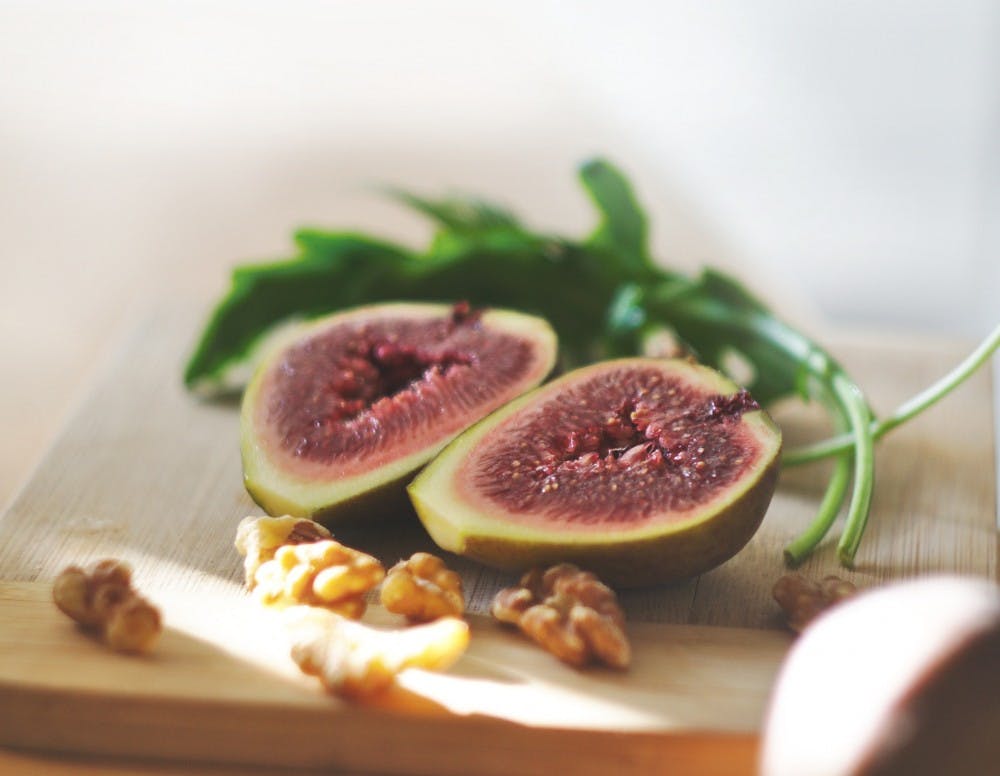Jell-O, apple juice and tattoo ink all seem like they are very different from each other; however, they all have one thing in common — they aren’t vegan.
Some foods many new vegans or non-vegans would think are animal-product free contain some form of animal product, whether used for texture, consistency, nutrition or flavor.
Jean Gannett, sophomore in pre-architecture, is a co-president of the Plant Based Plainsman, a vegan club on Auburn’s campus.
Gannett has been a vegan for a year and a half, so she is well educated on what is and is not vegan.
One of the most surprising fruits that some consider not vegan is the fig. Figs are pollinated by wasps, and sometimes the wasp dies in the process. When this happens, the fig consumes the wasp, and it remains inside.
Due to the wasp pollinating and partially being inside the fruit, some consider figs to be containing an animal product.
“My opinion on that subject is that vegans can eat figs,” Gannett said, explaining why she believes this food source is a “gray area” in the vegan world.
“The reason I think vegans can eat figs is that vegans don’t have any part in the animal product in there,” she said. “You’re not contributing to it, but it is just something that happens sometimes.”
She claims that not all vegans feel this way, but it is not something that most vegans usually forego eating.
Other sweet treats that are not considered vegan include gelatin snacks and marshmallows.
“Jell-O is made from gelatin, which is crushed animal bones and tendons,” Gannett said. “Gelatin is found in gummy bears, gummy worms, marshmallows, Jell-O and pretty much anything that has a gummy consistency.”
Although it may seem like a struggle to find substitutes for these without going to an all-organic store, there is actually a marshmallow substitute sold on Auburn’s campus.
“There’s actually vegan marshmallows sold in the War Eagle Supply Company, that convenience store in the Student Center,” Gannett said.
She also said that for anyone looking for a gummy substitute, organic products are usually vegan.
Aside from food products, other things can be non-vegan.
For example, certain apple juice brands are not 100 percent vegan.
“Some juices are fortified with different vitamins like Vitamin D, which is sometimes derived from sheep’s wool,” she said.
Other brands can use fish products to extract certain vitamins to add nutritional value to the beverage.
It is common knowledge to most that products can be tested on animals, which ultimately make them non-vegan, but it is not typically known that ink can have animal bones in it.
Tattoo ink can contain burned fragments of animals, typically bones.
However, vegans should not be worried if they would like to get a tattoo.
“I know that there are some shops that offer vegan ink; I’m sure just a quick Google search or looking on PETA’s website would totally show you where to get one,” Gannett said.
Gannett wants others to know that vegans are typically vegan for a cause, and that is why they are strict with their diet.
“Veganism is a way of living, which seeks to exclude, as far as is possible and practicable, all forms of exploitation of and cruelty to animals for food, clothing or any other purpose,” she said, quoting the Vegan Society’s definition of what it means to be vegan.
For those who are newly vegan and are curious about what unusual products do not meet the vegan standard, Gannett said they should just “question everything” and take the time to read labels as well as do some research.
Do you like this story? The Plainsman doesn't accept money from tuition or student fees, and we don't charge a subscription fee. But you can donate to support The Plainsman.





